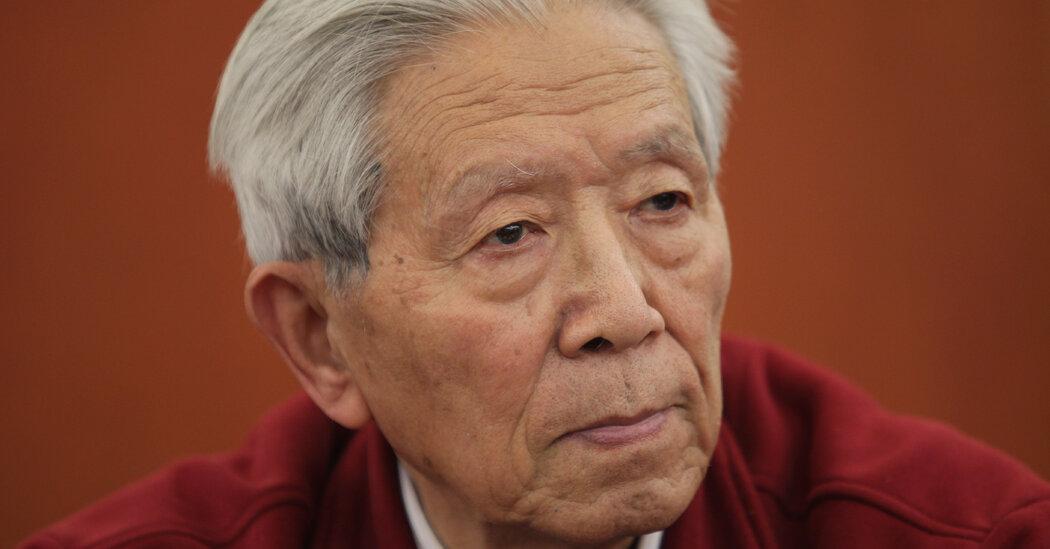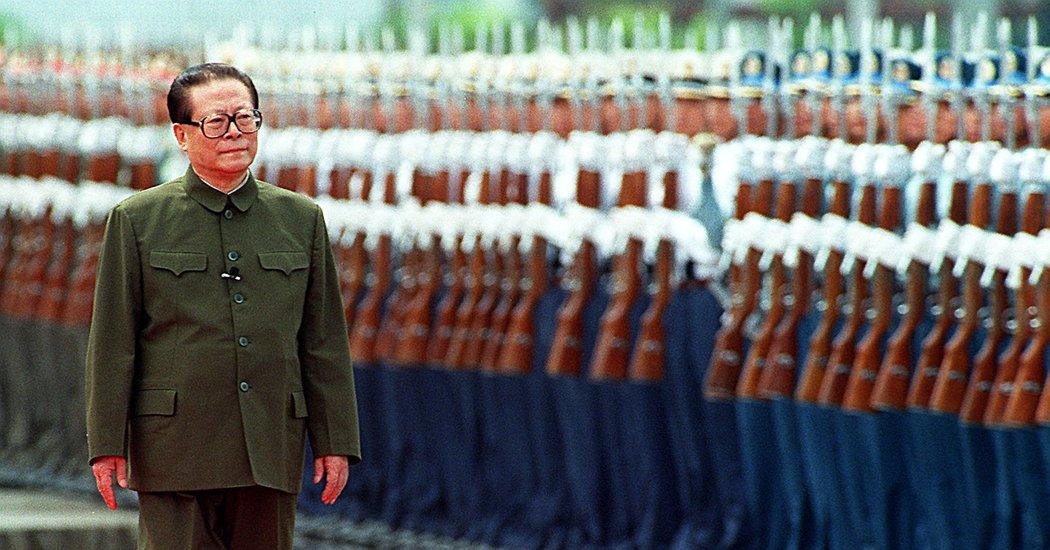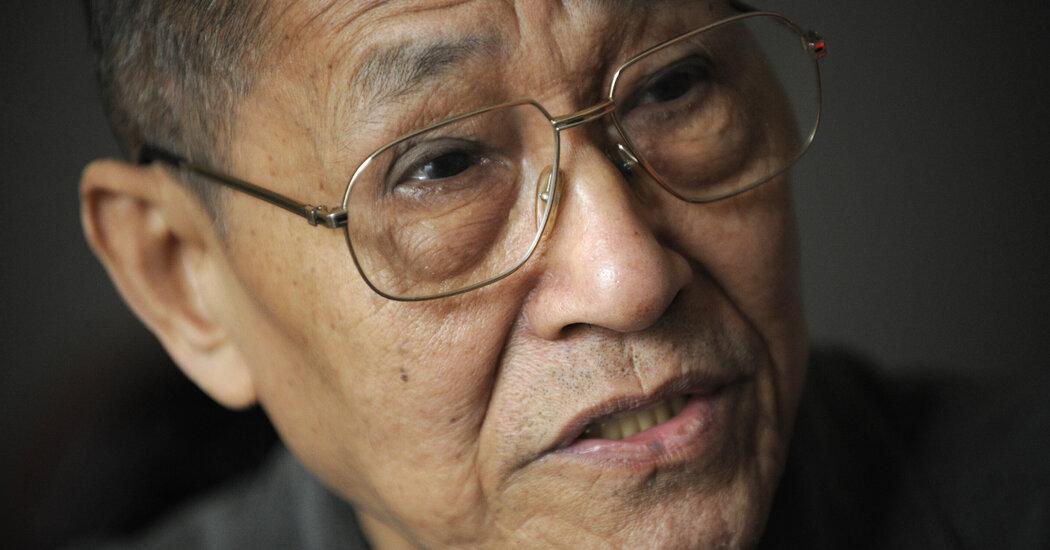He became known for his precision, steady hands and willingness to take on difficult cases, earning him the nickname “Brave Jiang.” But his idealism didn’t last long. In 1966, Mao unleashed the Cultural Revolution, the decade-long period of chaos that upended Chinese society. Groups of militant youths known as Red Guards roved the country, determined to root out “class enemies.” Dr. Jiang, whose father had been a banker and whose cousin was an official in the rival Nationalist party in Taiwan, was an easy target. Branded a counterrevolutionary, he was…
Tag: Deaths (Obituaries)
Master Hsing Yun, Monk Who Spread Buddhism in China, Dies at 95
The Venerable Master Hsing Yun, a Buddhist monk who built a global network of temples that extended to mainland China, putting him at the vanguard of popularizing Buddhism in a country whose government had long been hostile to religion, died on Feb. 5 in Kaohsiung, Taiwan. He was 95. His death, at the Fo Guang Shan Monastery, was announced by his organization, Fo Guang Shan. No cause was given. Master Hsing Yun was criticized for his political ties, especially for his support of China’s authoritarian leader, President Xi Jinping. But…
In China’s Covid Fog, Deaths of Scholars Offer a Clue
October 2022 Wang Linfang,92, molecular biologist Four members of China’s two most prestigious academic institutions died in October – in line with the average in recent years. Peng Yigang, 90 Chen Jisheng, 90 Qian Zhengying, 99 These are some of the country’s most decorated scientists. The academies publish obituaries to memorialize their contributions. Xie Sishen, 80, physicist specializing in nanotechnologies Tang Youqi, 102 Yang Shuzi, 89 Wang Wencai, 96, world-renowned plant taxonomist In November, Covid cases surged across the country. Shen Qihan, 100 Huang Kezhi, 95 Then, on Dec. 8,…
Jiang Zemin, China’s Leader After Tiananmen Square Protests, Dies at 96
The feral capitalism that Mr. Jiang and Mr. Zhu fostered created a wide rich-poor divide even as it lifted vast numbers from poverty, and it nurtured a culture of official corruption and cronyism. “In some ways, that was the start of this live-and-let-live attitude toward corruption that Xi Jinping now finds himself attacking,” said Joseph Fewsmith, a professor at Boston University who studies Chinese leadership politics. Wielding Influence By the time Mr. Jiang retired from the party leadership in 2002 and from the presidency in 2003, his influence and self-regard…
Bao Tong, 90, Dies; Top Chinese Official Imprisoned After Tiananmen
Mr. Bao’s wife, Jiang Zongcao, died on Aug. 21 at 90. Their deaths have been widely mourned by friends and supporters in China, although official media have not mentioned the deaths and social media sites have tried to stifle the news. Bao Tong was born on Nov. 5, 1932, in Haining, Zhejiang Province, in eastern China, the third of six children. His father, Bao Peiren, a manager in an enamel products factory, and his mother, Wu Heng, a homemaker, immersed their children in learning. The family fled the Japanese invasion…
Peng Ming-min, Fighter for Democracy in Taiwan, Dies at 98
By that time Mr. Peng had been blacklisted from returning to Taiwan, after a military court in 1964 convicted him of sedition over his involvement with two of his students in the printing of a manifesto calling for the overthrow of the Republic of China government and the establishment of a Taiwanese democracy. American pressure on Chiang Kai-shek to release Mr. Peng had led to his transfer from an eight-year prison sentence to house arrest in 1965. With help from Amnesty International, he escaped in 1970, fleeing to Sweden. The…
Budi Tek, 65, Dies; His Fortune Built a Vast Trove of Asian Art
Unlike many of those collectors, however, he always insisted that he had a civic obligation to display his art. After a few years showing his pieces in a Jakarta cafe, in 2007 he opened the Yuz Museum nearby, making admission free of charge. Even that wasn’t enough. As his collection of works from China grew, he zeroed in on an emerging art district in Shanghai, along the Huangpo River, for an even larger venue. He settled on a portion of an old airfield, and in 2014 opened his second Yuz…
Shintaro Ishihara, Outspoken Nationalist Governor of Tokyo, Dies at 89
Shintaro Ishihara, a Japanese author turned firebrand nationalist politician who served as the governor of Tokyo and famously stoked diplomatic tensions with China over disputed islands, died on Tuesday in Tokyo. He was 89. His death was confirmed by his sons, who told reporters in Tokyo that Mr. Ishihara had suffered a relapse of pancreatic cancer in October. “He led an era,” said one of his sons, Yoshizumi Ishihara. A contentious figure in the otherwise wan world of Japanese politics, Mr. Ishihara was governor of Tokyo for 13 years beginning…
Jonathan Spence, Noted China Scholar, Dies at 85
Jonathan D. Spence, an eminent scholar of China and its vast history who in books like “God’s Chinese Son: The Taiping Heavenly Kingdom of Hong Xiuquan” (1996) and “The Search for Modern China” (1990) excavated that country’s past and illuminated its present, died on Saturday at his home in West Haven, Conn. He was 85. His wife, Annping Chin, said the cause was complications of Parkinson’s disease. Professor Spence, who taught for more than 40 years at Yale University, where his lecture classes were always in great demand, found the…
Carlos Tejada, Deputy Asia Editor for The New York Times, Dies at 49
“Carlos always pushed me and other journalists to do more stories that showed the human side of China,” Ms. Yuan wrote. “He wanted the world to understand China wasn’t just about an authoritarian government.” Carlos Ramon Tejada was born on Dec. 7, 1972, in Rochester, N.H. His mother, Carlene (Richardson) Tejada, taught English as a second language and is a former magazine editor; his father, Juan, who is from El Salvador, owns an acupuncture clinic in Tucson, Ariz. Mr. Tejada graduated from the University of Kansas with a bachelor’s degree…







